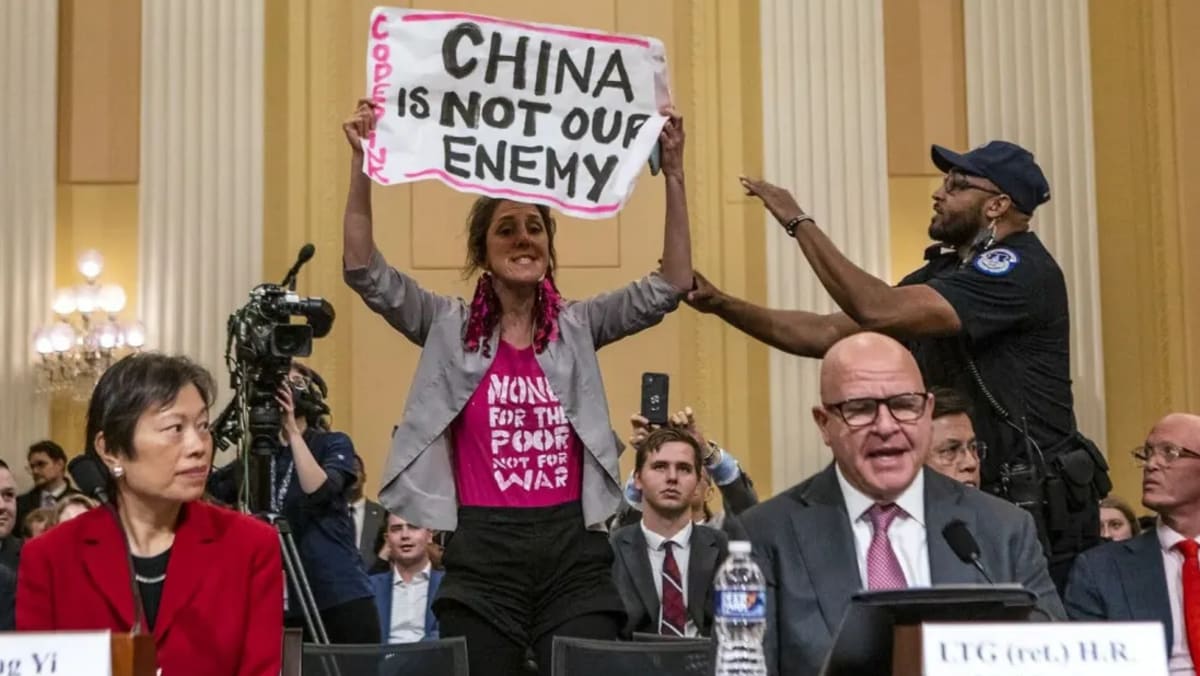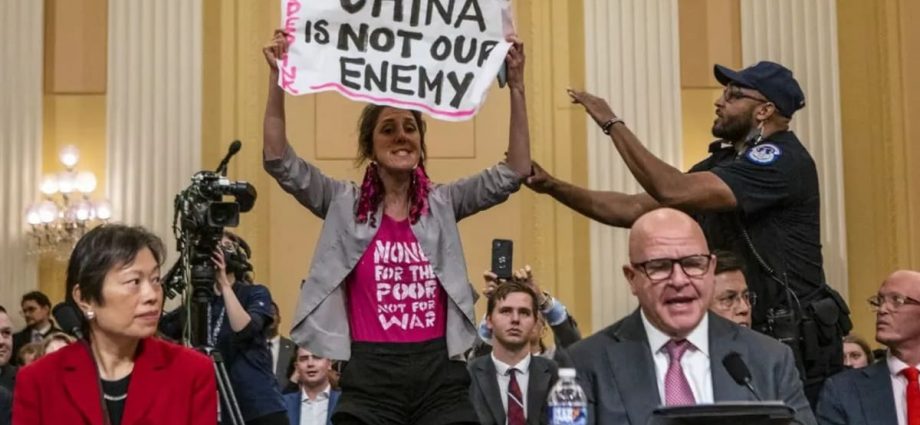
The campaign, with staff and backers around the US, is ramping up hiring to “meet the madness” and combat the “manufactured common sense” in the halls of Congress, Evans said. Along with disrupting hearings, it conducts congressional advocacy, hosts educational sessions and builds community-based, grass-roots coalitions.
Code Pink’s congressional allies include those seeking diplomatic solutions to war. The organisation supports an ongoing effort led by Democratic congresswoman Pramila Jayapal of Washington, who chairs the Congressional Progressive Caucus, to call for greater diplomatic efforts – including direct talks with Russia – to end the war in Ukraine.
The disruption last Tuesday – the third China-themed event Code Pink has interrupted in recent months – has sparked an influx of new volunteers for the organisation, particularly Asian-Americans.
“Bipartisan consensus is why this country is in such bad shape,” Evans said. “We don’t need consensus. We need to fight. We need to understand the issues.”
Since 2018, China has increasingly drawn bipartisan alignment, fuelled by the rhetoric of then-president Donald Trump, according to Weiss, a former US State Department adviser. Though there are some signs of a changing rhetoric – like warnings by some Democrats that the select committee might be counterproductive – hawkishness remains the prevailing policy tone in Washington.
Weiss described the phenomenon as emanating from a “self-fulfilling escalatory spiral”: politicians speak harshly on China to avoid appearing weak to voters who demand a strong stance because of fear fuelled by the harsh rhetoric.
Framing a problem in terms of countering or competing with China discourages careful assessment of “the shape of the challenge and the costs and benefits of different policy responses,” she said. It also leads the other side to presume hostile intent, which can feed into miscalculation and deadlock, she added.
Weiss believed the costs of this rhetoric were not only potential, as in the case of conflict over Taiwan, but had already happened, such as tariffs that hurt American businesses and a loss of incoming talent from places like China.
Indirectly responding to McMaster’s portrayal of the protesters, she cautioned against a framework in which “anybody who wants to engage in the … rational, measured debate over China’s intentions and US policy responses is likely to be smeared or marginalised as somebody who is sympathetic to the [Chinese Communist Party].”
Code Pink, for its part, appears to be unafraid of misrepresentation by others.
Evans has repeated narratives often advanced by Beijing, including that China has succeeded in lifting millions out of poverty. She has also granted interviews to Chinese state media, who were the first media to reach out to Code Pink after the hearing.
Asked how she would respond to people who claim she is a Chinese government apologist, Evans called herself “a peace activist” not driven by fear and said “the [US] government is an apologist for so much violation”.
Swaine is unpersuaded by arguments that blame one side for the state of the US-China relationship, saying that they miss the “interactive dynamic of worst-casing and escalation”. He also cautioned against thinking that generic calls for peace could lead to concrete solutions, but noted the potential parallel between the miscalculation that triggered the Iraq war of 2003 and the current situation with China.
If the notion that China has given up on peaceful reunification with Taiwan takes hold within the US government, just as the Iraqi nuclear weapons belief did, then “you have a situation that becomes very dangerous”, he said. Swaine voiced particular concern about who might come into power after the Biden administration.
Meanwhile, voices like Code Pink could open up more room for dissenting views and broaden the policy landscape.
“The words ‘China is not our enemy’ [got] printed in The New York Times and The Washington Post,” Evans said. “That was a victory.”
This article was first published on SCMP

